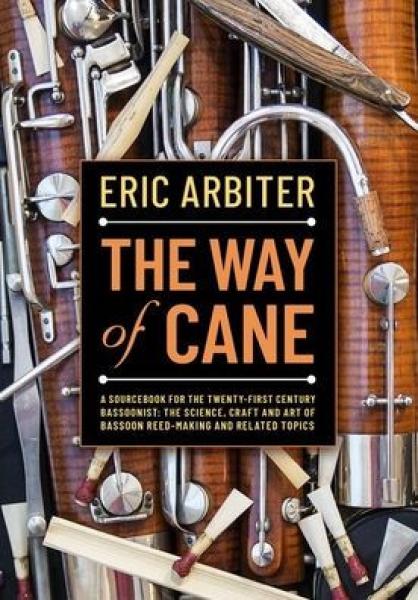Description
In The Way of Cane, Arbiter demystifies this process for bassoonists of all levels of experience. Drawing from his decades-long experience as both musician and reed-maker, Arbiter provides a comprehensive yet accessible overview of the craft, from the differing sound qualities produced by changing the dimensions of the reed's blades to the changes in the reed's behaviors as it passes through cycles of wetting and drying during production. Small changes in each of these variables, Arbiter explains, contribute to the ultimate goal of producing a bassoonist's ideal sound. With step-by-step instructions, detailed photos that further illuminate the reed-making process, and a companion website featuring the author's own recordings. The Way of Cane emphasizes the importance of the reed to the bassoon's sound, as well as the harmony between reed and musician.
"The philosophical, musical, personal and scientific basis for the author's particular approach to reed-making. The importance of the communication of being human as expressed through the arts in general and music in particular. Knowing, not knowing and intimacy as aspects of good reed-work. The method of building reeds which are both beautiful to hear and comfortable to play is introduced. The concept of the distribution of the cane affects the tone quality and ease of playing is introduced. Reeds are seen as interconnected to our concept of sound musicianship and our grounding in the physical world"--
Nothing like this outstanding volume exists anywhere. The language is easy to understand, and is a 'must read' for those seriously studying the bassoon. It contains a thorough guide to bassoon reed-making, from elementary procedures to professional methods. The book goes beyond reed-making to present information about fingerings, articulations, and many of the musical problems a professional bassoonist has to learn and solve. -- Bernard Garfield, Philadelphia Orchestra principal bassoon, retired
FINALLY!! A reed making book that is not just an oversimplified cookbook or a dictatorial 'How-to Manual.' With the all-important bigger picture at the forefront, this book is entirely unique at its core when compared to all the other reed-making books out there. -- Roger Tropman, bassoonist, teacher, and owner of www.nexuswoodwind.com
Product Details
- Oxford University Press, Brand
- Aug 14, 2020 Pub Date:
- 0190919620 ISBN-10:
- 9780190919627 ISBN-13:
- 352 Pages
- 9.9 in * 6.9 in * 0.9 in Dimensions:
- 1 lb Weight:




